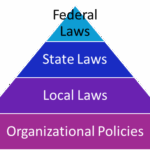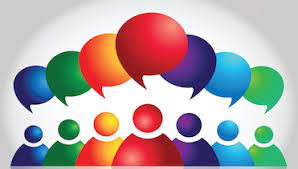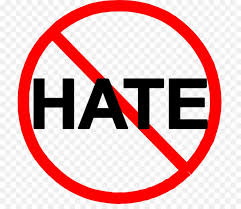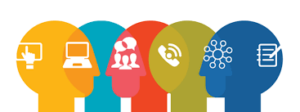Cut the Confusion
Employers, and the rest of us, are understandably confused these days about what the rules are, how to enforce them, and how to carry on and stay calm. There are those who ascribe to the belief that chaos is necessary to create a new and better society. I am not one of them. One day we are told that any reference to DEIA is forbidden. The next day academic institutions are being charged with violating Federal law by allowing antisemitism to take place unchecked. The alleged rules shift again and again and again. The result: no one knows what to do or not to do. Well, almost no one.
There are several states that are currently shoring up their legislation to assure that people, especially students, are protected under state law, as Federal protections are not being enforced which, despite any statements or conduct in contradiction to this, are still in effect.
The Laws
Here are some simple definitions of Federal statutes relating to discrimination in higher education and related links for more information.
Title VI of the Civil Rights Act of 1964 prohibits discrimination by recipients of Federal funds.
Title VII of the Civil Rights Act of 1964 prohibits discrimination by employers of more than 15 people on the basis of a protected class and establishes the U.S. Equal Employment Opportunity Commission to prevent any person from engaging in any unlawful employment practice.
Title IX of the Education Amendments of 1972 prohibits discrimination on the basis of sex in any education program or activity receiving Federal financial assistance.
Section 504 of the Rehabilitation Act of 1973 prohibits discrimination on the basis of physical or mental disability by any program or activity receiving Federal financial assistance.
Title II of the Americans with Disabilities Act of 1990 (The ADA) prohibits state and local governments from discriminating on the basis of disability. The U.S. Department of Education enforces Title II in public colleges, universities, and graduate and professional schools.
State’s Rights

Amendment X (1791) to the United States Constitution [the ‘States’ Rights amendment]
The powers not delegated to the United States by the Constitution, nor prohibited by it to the States, are reserved to the States respectively, or to the people.
The way that I explain jurisdictional protections against discrimination is with a pyramid. The Federal Government is at the top of the pyramid, the State is below that, local government comes next, and organizational policy is at the base.

Everyone in the United States is required to comply with Federal laws. The laws established at the State level may provide additional protections which do not violate Federal laws. Cities may provide even more protections then exist at the State level, again, as long as those laws do not violate State or Federal laws. Organizations may establish policies that go beyond the laws as long as they do not violate them. For example, a policy granting two weeks of paid vacation is above and beyond legal requirements for leave. (Employment policies covering union members are agreed upon through the collective bargaining process. Policies for public employees (local, State or Federal) will necessarily abide by the policies established within the governing jurisdiction.
New and Improved
On August 26, Governor Kathy Hochul of the State of New York signed the Stavisky/Rozic Bill (NY State Assembly Bill 2025-A5448B) requiring all colleges and universities in the State of New York[i] to
have a designated Title VI coordinator (who is to be trained) responsible for addressing allegations of discrimination
conduct education for employees and students on an annual basis
This is a reinforcement of existing statutes which specifically provides both the commitment (designated staffing) and the accountability (training) needed to protect students from discrimination and hate crimes at the State level. The New York State Division of Human Rights protects students from discrimination based on specific characteristics known as protected classes and has oversight for this law.
The bill does not provide details regarding the methodology for the Title VI Coordinators’ training or the education to be administered to students and employees, nor does it specify any requirements for those who conduct that training. This is an opportunity and a challenge. The critics of all things DEIA have used examples of those who may be passionate about preventing discrimination and hate crimes but may not have enough practice doing so to destroy confidence in this field of work.
There is a huge difference between effective training and informational webinars. I am a strong advocate for the former. The subject of hate crimes and discrimination are fraught and require a deft and deeply experienced approach if they are to be effectively addressed. I urge the State of New York to carefully research and implement effective educational methodology and to include requirements for who is qualified to conduct this training.
A good example of this is the State of California which includes requirements for both training and trainers as part of their sexual harassment prevention law.[ii] I would add that Title VI Coordinators be required to have a background in antidiscrimination policy implementation, investigation of complaints, and education and outreach. The law goes into effect on August 26, 2026 so there is time to create policy, protocols and procedures for best practices and accountability.
This is an opportunity to create change, protect students and employees from discrimination and hate crimes, repair an incredible chasm of distrust and solidify New York State’s commitment to diversity, equity, inclusion and access.
Practitioner
Working in the public sector, Title VI was an important part of that work as we were responsible to protect employees and members of the public from being subjected to hate crimes, as well as employees from members of the public committing hate crimes. For example, if a passenger on the Staten Island Ferry is discriminated against (based on a protected class status such as race, ethnicity, religion, etc.) they have the right to file a Title VI complaint with the City of New York. If the same passenger sexually harasses an employee working on that ferry, the employee and the City have the right to sue the passenger for violation Title VI. The State of New York (and several others) reinforce the Federal Statutes by enacting laws that echo them as does the City of New York. So, violators are subject to Federal, State and City laws.
I was a core member of multiple teams responsible for developing and implementing policies on Title VI, Title VII, Title IX, Section 504 and the ADA for the City of New York. I have also developed policies and protocols for various individual governmental agencies outside of NYC and have trained thousands of employees and practitioners on these subjects.
Having consulted with multiple academic institutions on matters under the aegis of both Title VII and Title IX, I am fully aware of the specific nuances and complexities of each when trying to establish real accountability and measurable change. Navigating the convergence of the various groups involved: tenured faculty, union members, student unions, parents, community organizations and governmental leaders can be precarious, to say the least. I also understand the interdependence of elected and appointed officials and those charged with leading independent organizations when it comes to protecting all people from abuses based on their protected class status.
I salute Governor Hochul’s commitment to protect the people of the state of New York and gladly offer my services to assist in this endeavor as one uniquely suited to do so.
Onward!
Wendy Amengual Wark
September 9, 2025
[i] defined as a college or university chartered by the regents or incorporated by special act of the legislature that maintains a campus in New York state
[ii] https://calcivilrights.ca.gov/wp-content/uploads/sites/32/2019/10/AttachF-EmployRegHarassmentPreventionTraining.pdf



 There is abundant data showing that employees who work in organizations that effectively and strategically incorporate diversity, equity, inclusion and access into their policies, protocols, and practices, are much happier than those who work in organizations where these concepts are not valued.5 More people apply for jobs at these organizations—more highly qualified people. Turnover is diminished, law suits are less common, and engagement and productivity are higher.
There is abundant data showing that employees who work in organizations that effectively and strategically incorporate diversity, equity, inclusion and access into their policies, protocols, and practices, are much happier than those who work in organizations where these concepts are not valued.5 More people apply for jobs at these organizations—more highly qualified people. Turnover is diminished, law suits are less common, and engagement and productivity are higher. I recommend showing and telling. Meaning, we need to share the ample evidence that being around diverse human beings is healthy for us as individuals, organizations, and communities; that being inclusive: collaborating with others in an interdependent way is incredibly efficient, effective, and makes us happier; that having equity means that we all have a right to the same protections and; that having accessibility does not just benefit those who have been historically excluded based on having a disability, but provides all of us the opportunity to collaborate with more people.
I recommend showing and telling. Meaning, we need to share the ample evidence that being around diverse human beings is healthy for us as individuals, organizations, and communities; that being inclusive: collaborating with others in an interdependent way is incredibly efficient, effective, and makes us happier; that having equity means that we all have a right to the same protections and; that having accessibility does not just benefit those who have been historically excluded based on having a disability, but provides all of us the opportunity to collaborate with more people.





